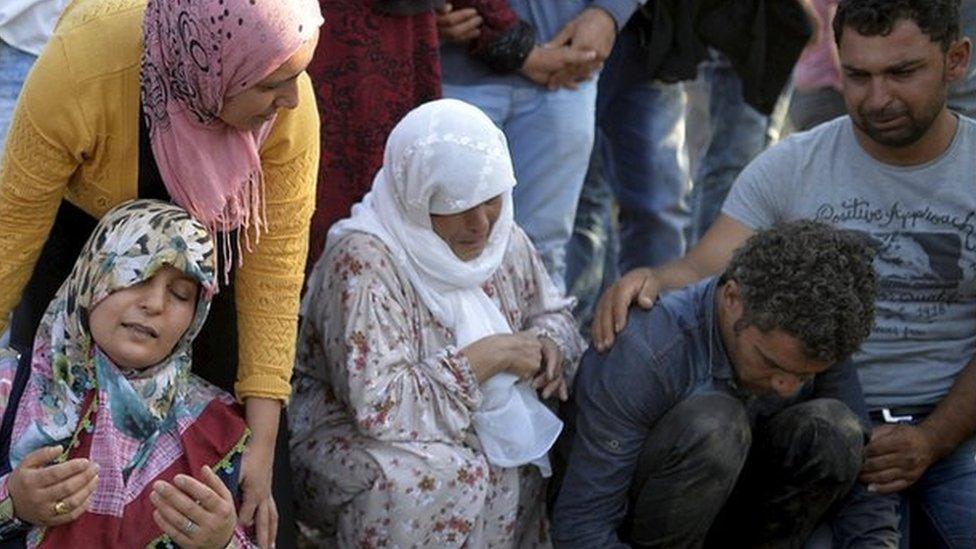Turkish PM blames Ankara bombing on Islamic State
- Published
As Jeremy Bowen reports, some of the mourners have expressed anger at the government
The Islamic State (IS) group is the prime suspect in the Ankara bombings that killed nearly 100 on Saturday, Turkish PM Ahmet Davutoglu has said.
No group has said it carried out the attack, but the government believes that two male suicide bombers caused the explosions, hitting a peace rally.
The official death toll is 97 but rally organisers have put the figure at 128.
Funerals for more of the victims were held on Monday, with some mourners expressing anger at the government.
Saturday's twin explosions ripped through a crowd of activists outside the main railway station in the Turkish capital.
They were due to take part in a rally calling for an end to the violence between Turkish government forces and the militant Kurdistan Workers' Party (PKK).

Analysis: Selin Girit, BBC News Ankara
The political campaigning has been interrupted because of the attacks. The pro-Kurdish HDP is considering cancelling all its rallies prior to the election out of security concerns.
The governing party has already cancelled its rallies until Friday but they will be holding "rallies against terror" afterwards.
Some already had doubts about how free and fair the upcoming elections would be, as there were attempts to move polls from violence-ridden areas in the south-east to more secure locations. But election officials had ruled out that option.
Saturday's attacks seem to have further polarised Turkey. Leaders cannot come together to make a united stand against violence.
Many now fear the country could end up in escalating violence that could lead to the elections being scrapped.

There is anger in Turkey that authorities were unable to prevent such a major attack - and some scepticism from opposition groups about the government's claims.
Mr Davutoglu said authorities were close to identifying one of the suicide bombers, using DNA tests, and that this would help to pinpoint which group was responsible.
He had previously said that IS, the PKK and far-left groups were all capable of such an attack.

Ankara bombings: Read more
How dangerous is Turkey's unrest? - What are the risks of the crisis deteriorating?
"This is the worst scene I've ever seen" - Shock and anger in Ankara as mourning begins
Blasts divide Turkish media - Not all commentators share the view that IS is to blame
The suspects - A look at the groups that might be responsible
Who are the Kurds? - The long history of the Middle East's fourth-largest ethnic group
Turkey v Islamic State v the Kurds - What's going on?

The situation in Turkey was tense even before the Ankara bombings.
The ceasefire with the PKK had broken down and there had been clashes between the militants and security forces, killing at least 150 since July.
Some local media have implicated the brother of a man who carried out an IS bombing in the southern border town of Suruc in July, which killed more than 30 people.
Turkey announced after the Suruc bombing that it would allow its southern Incerlik airbase to be used by the US-led coalition targeting IS in Syria. Turkey, a Nato member, shares a long land border with its unstable southern neighbour.
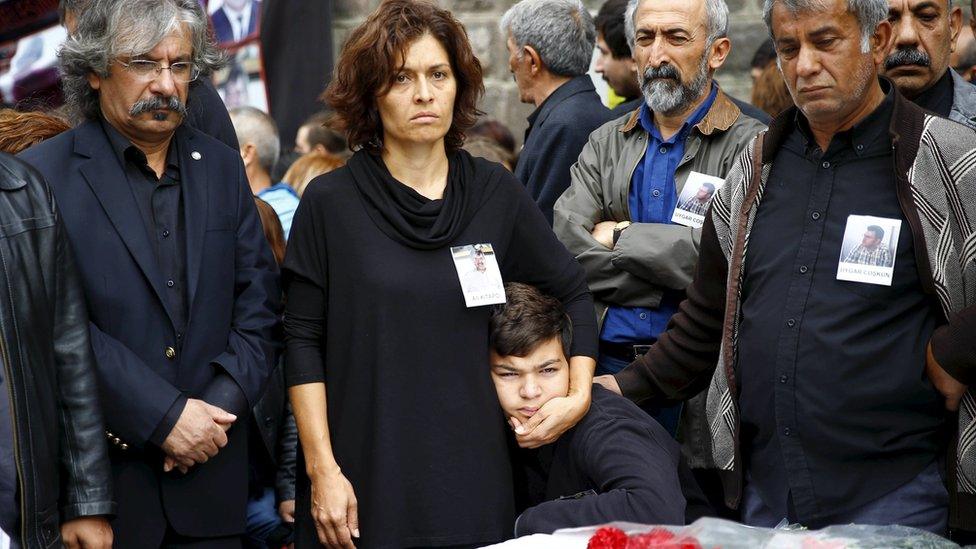
The wife and son (centre) of victim Ali Kitapci attended a commemoration near the site of the explosions on Monday
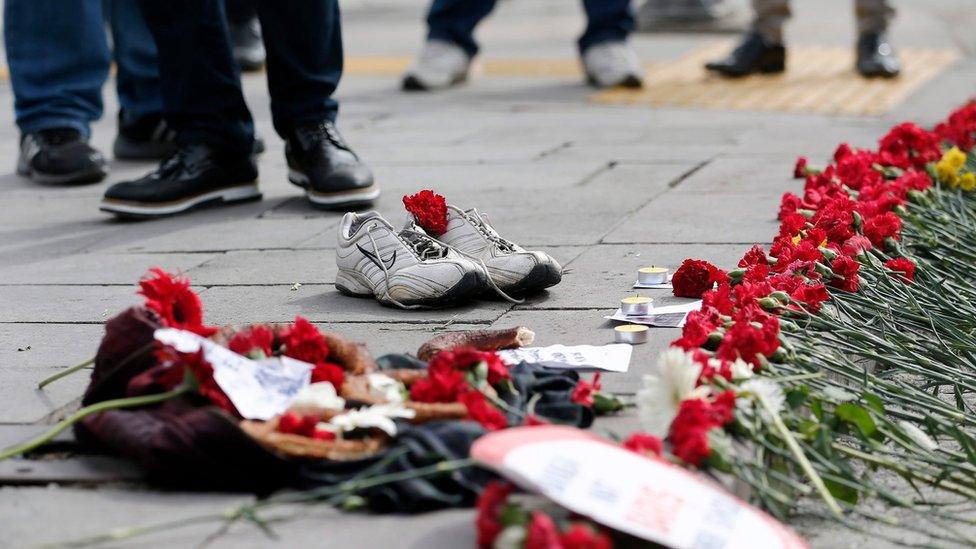
Carnations have been placed near the site of the bombing, in the heart of Turkey's capital
The Ankara bombings are the deadliest in Turkey's history.
"These attacks will not turn Turkey into a Syria," Prime Minister Davutoglu said on Monday.
Speaking on Turkish television, Mr Davutoglu said the bombings were an attempt to influence elections due on 1 November, after a vote in June left no party able to form a government.
Many of the victims were activists of the pro-Kurdish HDP party, which believes its delegation at the march was specifically targeted.
Caroline Hawley answers key questions about the impact of the twin bombings
The HDP gained parliamentary seats for the first time in June's vote, depriving President Recep Tayyip Erdogan's AK Party of its majority.
In a statement, external released on Monday, the HDP's leaders said the AK Party was using "escalation of violence" as a strategy to push the leftist, pro-Kurdish party back under Turkey's high electoral threshold for entering parliament.
They link the Ankara bombings to the Suruc attack and the fatal bombing of an HDP electoral rally in June, labelling them a "chain of massacres", and call on the international community to take "a firmer stance" with Turkey's government.
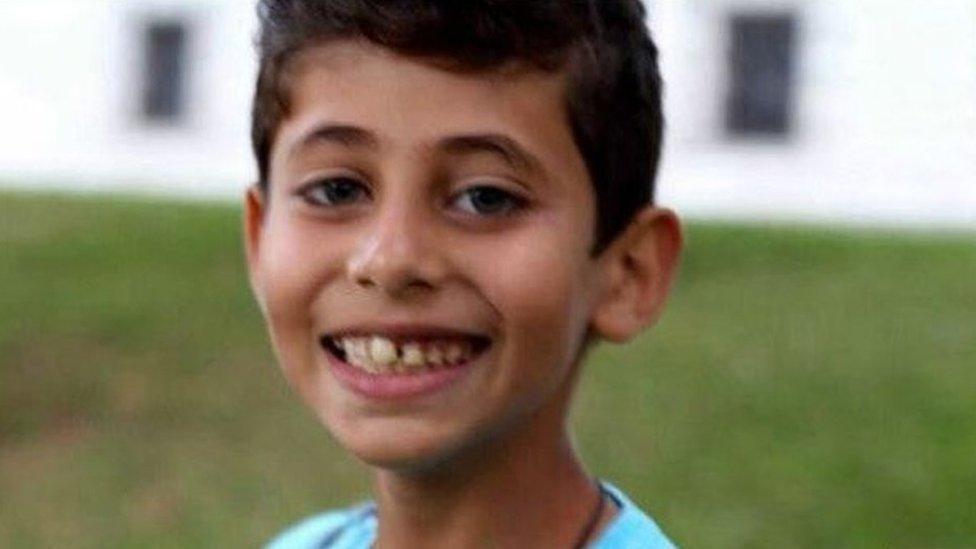
Nine-year-old Muhammed Veysel Atilgan was killed with his father in the attack
The youngest victim, nine-year-old Muhammed Veysel Atilgan, was buried on Sunday in his hometown of Batman alongside his father, Ibrahim Atilgan who also died in the attack.
On Monday thousands of people attended funerals in Istanbul and Ankara, with many mourners venting their anger at the government.
"The killer state will be held to account!'' some demonstrators in Ankara chanted.
One of the victims of Saturday's attacks has been identified as 70-year-old Meryem Bulut, a member of the Saturday Mothers group, who have protested about their missing sons since the 1990s.
The BBC's Mark Lowen in Ankara says critics of the Turkish government believe it is using IS as a scapegoat - and that murky elements of a so-called "deep state" are to blame for the bombings.

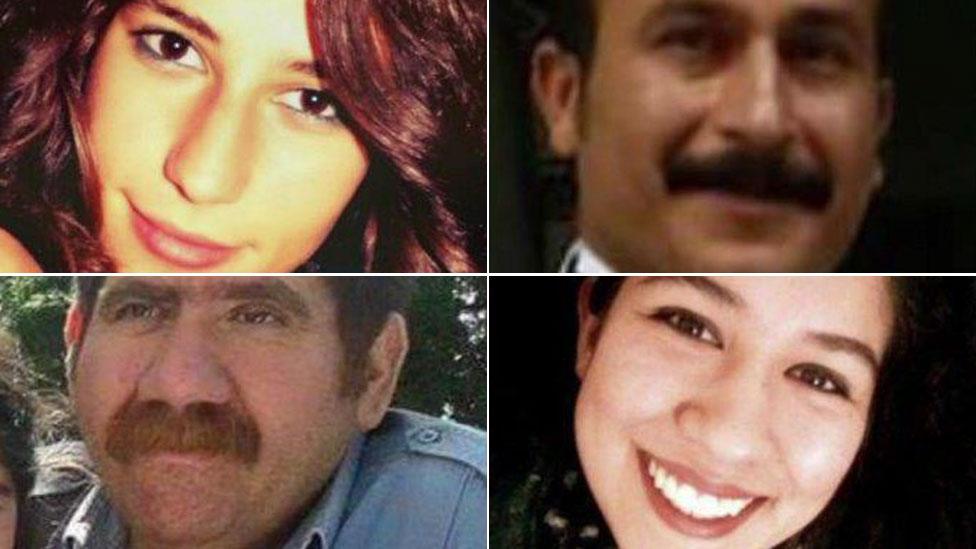
The victims
Turkey is mourning the deaths of at least 97 people. These are just a few of those who lost their lives, clockwise from top left:
Elif Kanlioglu: A 20-year old student in her second year of university, who loved studying foreign languages.
Yilmaz Elmascan: Described by a friend as a peace-loving man, who got married last year. His wife is also said to have been killed in the attack.
Sebnem Yurtman: Studied at Ankara university, and later in Adana. She was described as "full of life".
Mesut Mak: He was a member of an agriculture and forestry union. He had a daughter.

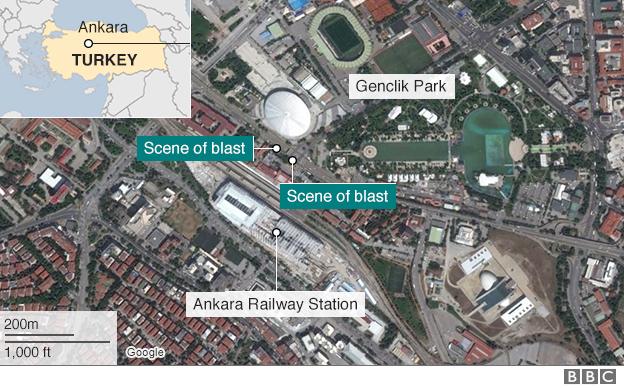
- Published10 October 2015
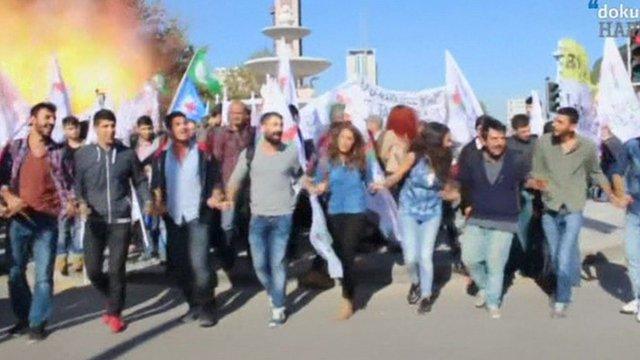
- Published10 October 2015
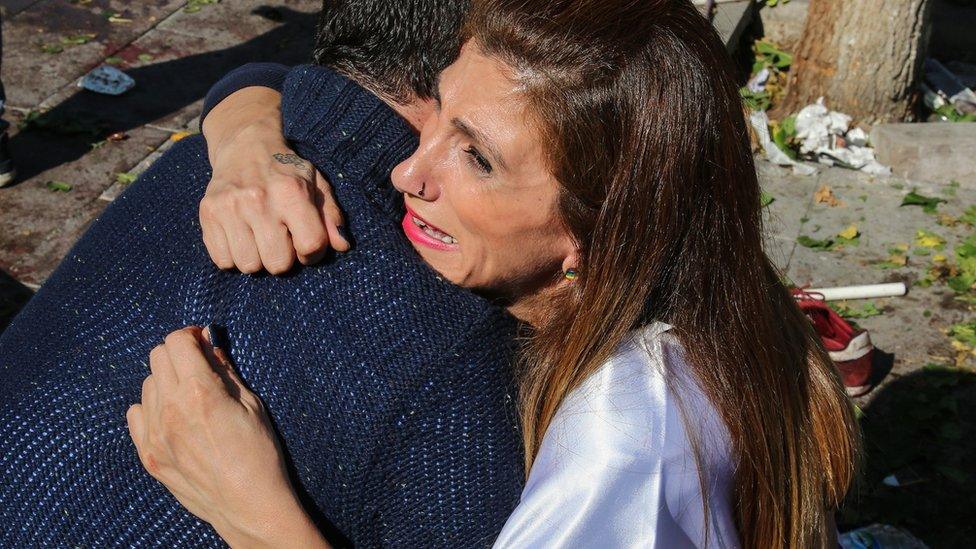
- Published2 December 2015
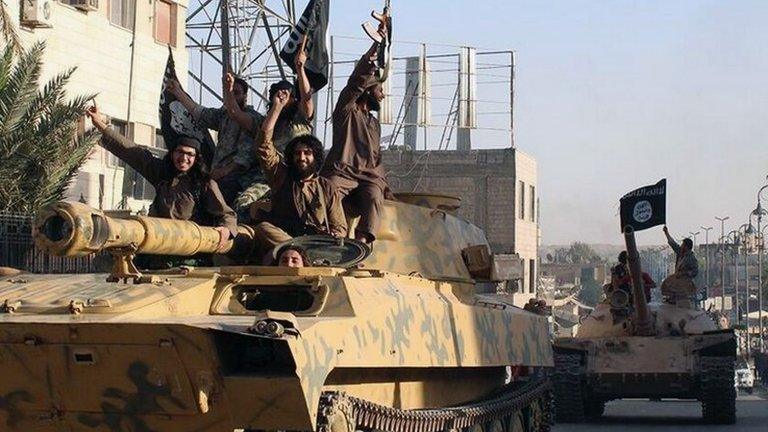
- Published23 August 2016
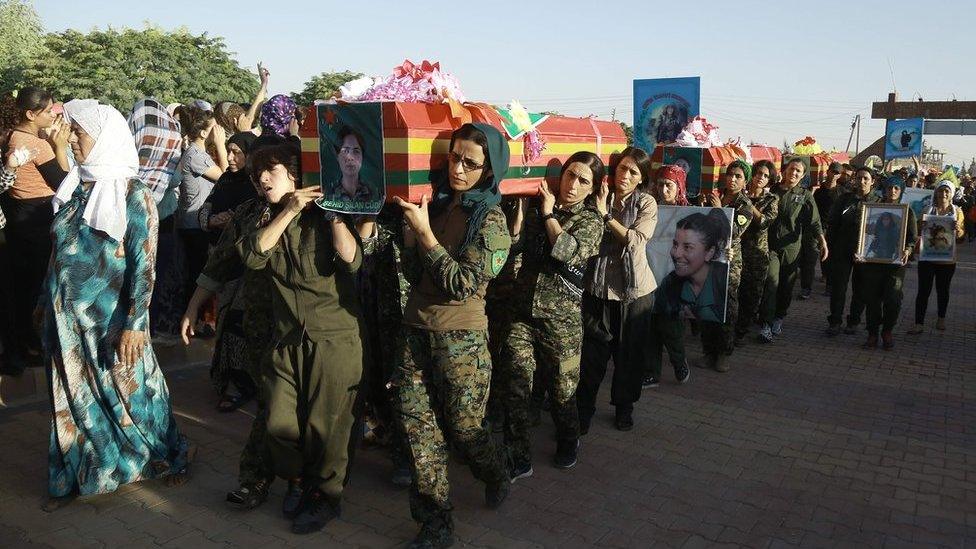
- Published21 July 2015
